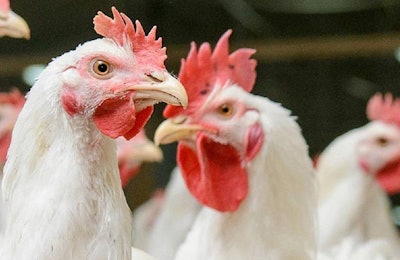
Despite some impacts of the novel coronavirus (COVID-19) pandemic towards the end of the period, Scandi Standard has reported a strong adjusted result for the first quarter of 2020.
The firm is now looking ahead to the medium and long term, reports CEO and Managing Director Leif Bergvahl Hansen.
Following a strategic review earlier this year, Scandi Standard will focus more attention on its ready-to-cook (RTC) and ready-to-eat (RTE) activities. These activities are forecast to deliver both organic growth and earnings potential. Hansen expects to embark on some of the new priorities without delay, and to introduce changes to the company’s reporting segments later this year.
Business 'resilient to COVID-19'
For the first three months of the year, Scandi Standard reported strong operating performance, as well as resilience to the impacts of the coronavirus pandemic.
Despite a drop in net sales in its Danish operation, the group as a whole registered an overall 1% increase to just under 2.48 billion krona (SEK; US$2.54 million). This helped to raise adjusted operating income for the quarter to SEK117 million (from SEK110 million in the same period of last year), providing a small increase in margin to 4.7%.
Taking into account non-comparable costs including SEK27 million arising from the COVID-19 pandemic and currency effects, both total income and earnings per share were lower than in the first quarter of 2019.
Impacts of the pandemic were only felt at the end of the reporting period. As registered by other food companies, Scandi Standard experienced an abrupt drop in its sales to food service of around 30%, while there was a 7% increase in those to retail. These changes broadly offset each other, according to Hansen. Previously, the company reports around 60% of its net sales through the retail channel, and 20% to food-service.
In adapting to these changes in sales channel, Scandi Standard reports taking “forceful measures” to realign throughput of products to these different channels. This included temporary closures of some plants dedicated to food-service products, and longer working hours for those producing products for the retail sector. For specialized product lines already in store, the firm sought alternative outlets.
For the quarter, the firm’s coronavirus-related costs arise mainly from inventory write-down, adjustments to production capacity, and bad debt provision linked to the food-service sector. Among the workforce, Hansen reported a higher-than-normal sick leave and increased overtime.
Looking ahead in 2020
From the quarterly results and strategic review, Hansen sees Scandi Standard in a good position to make acquisitions in the poultry market. For the group, acquisitions offer significant benefits through the sharing of best practice and improved efficiency and sustainability, as well as contributing to greater earnings stability.
As a key producer of the most affordable animal protein and with sales channeled towards the growing retail market, Hansen reports that the Scandi Standard business has good prospects for the coming months.
More on Scandi Standard
According to the Poultry International Top Companies producers listings, annual slaughterings of more than 115 million birds put Scandi Standard in 29th position in the rankings of the largest poultry companies in Europe. As well as broilers, it produces turkeys, ducks and table eggs (in Norway).
Anticipating increased costs from the COVID-19 pandemic, Scandi Standard announced it was introducing precautionary cash-preservation measures one month ago.
Based in Sweden, Scandi Standard is the leading poultry meat producer in the Nordic region, according to the firm’s latest annual report. It was founded in 2013 by the merger of Kronfågel (Sweden) and Danpo (Denmark), and the acquisition of Den Stolte Hane (Norway). In 2015, the group acquired Finland’s Naapurin Maalaiskana, and Manor Farm of the Irish Republic two year later. Net sales in 2019 amounted to SEK9.891 billion, achieving organic growth of 12% over the year. Sales were particularly strong in the ready-to-eat sector. The firm also exports to more than 40 countries.
In its latest results published recently, Finland-based meat company HKScan also reported increased sales for the quarter, along with impacts of the coronavirus pandemic on its business.
View our continuing coverage of the coronavirus/COVID-19 pandemic.
















